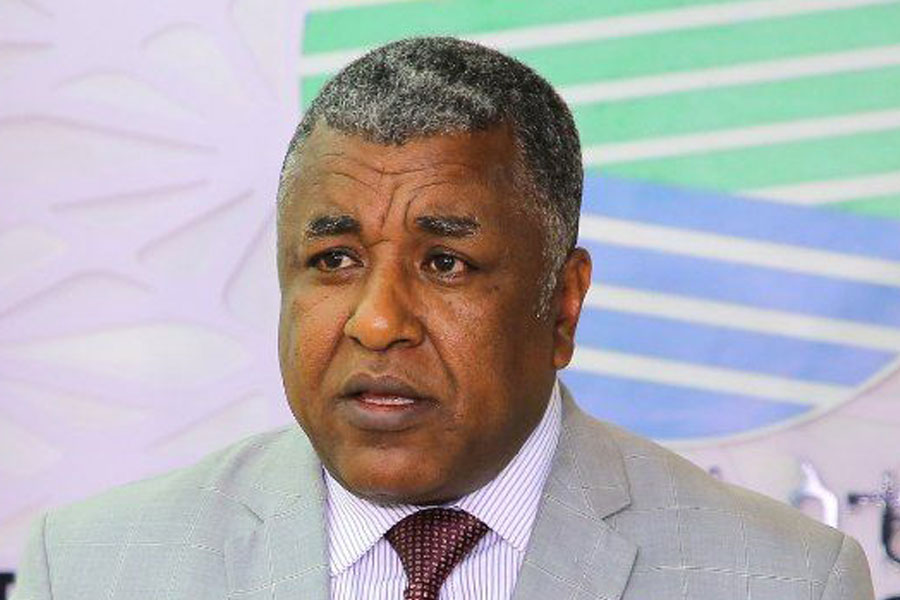
Fortune News | Jun 11,2022
Mar 28 , 2020
By MAYA MISIKIR ( FORTUNE STAFF WRITER )
A new guideline that will establish official rates to visit tourist destinations across the country and centralise the pricing system is in the making.
The guideline will centralise the payment system for tourist destinations involving different stakeholders from across the board. The guideline was drafted by different institutions at the federal level that are engaged in the administration of heritage, culture and natural resources.
The draft has been up for consultation twice, first among institutions at the federal level and then with other relevant stakeholders including Tourism Ethiopia, Ethiopian Airlines, the Ethiopian Tour Operators Association and Dalberg - Master Card Foundation. The latest consultation form was held on March 14, 2020, at an event held at Capital Hotel.
Currently, regional governments come up with their own rates that are unstudied and mismanaged, which causes problems, according to Hunde Kebede, director of tourist destination development under the Ministry.
"The country hasn't been fully utilising its natural resources because of problems arising from informal pricing," said Hunde, "Aside from being set too low, the rates of some tourist destinations change multiple times a year, while the prices at other attractions remained the same for more than 10 years."
Ethiopia generated a total of 3.2 million dollars from over 800,000 international and three million local tourists in the past fiscal year.
Under the new guideline, there will be a regulatory body made up of different stakeholders to make sure the rates are fair and balanced. The regulatory body will also oversee the implementation of the rates through the regional governments.
The draft aims to provide stable prices by fixing rates that will be in place for two to three years before they are reviewed. Under exceptional circumstances, the rate could be subject to change within a lesser period of time. The guideline also sets principles for rating the tourist destinations. Looking at rates of international tourist destinations to have additional context is among the tasks that will be conducted before setting up the prices.
Prices can fluctuate multiple times within a year and this has posed a serious problem to the industry. Danakil Depression in Afar is an example, since the entrance fee of this popular tourist destination has tripled from 200 Br to the current 805 Br within a year.
"This was difficult for tourists and tour operators alike," said Hunde.
The price fluctuation has disrupted package deals offered by tour operators, and tourists were displeased with last minute prices changes as well, according to him.
"This left the tour operators at a financial loss and negatively affected their credibility," he said.
If duly implemented, this guideline will solve the current issues of pricing, according to Yaqob Mekonnen, president of the Ethiopian Tour Operators Association.
"The most important factor in this is that all the relevant stakeholders are consulted before setting the rates," Yaqob said.
The federal government, the regional governments, religious institutions and individuals are the four main bodies that administer tourist destinations. Under the guideline, 12 different institutions from these four sections are selected for the regulatory body.
The draft gives the mandate to this body for overseeing the rating process and implementation. The regional governments will be responsible for coming up with the list of prices under their jurisdiction in accordance with the guidelines approved by the regulatory body.
The guideline will ensure that it incorporates the views of tour guides, destination managers and hotels that are brought in for discussion, according to Sileshi Girma, CEO of Tourism Ethiopia.
"Based on consultations, prices will be increased or decreased depending on the reasons that are tabled at the meetings," said Sileshi.
The draft guideline states that parties not complying with the guideline will be held accountable according to law. However, there are no repercussions at this time.
The guideline is set to serve as a temporary relief to the pricing problem, while a new governing proclamation is underway, according to Hunde.
"It is more of a managing document than a punitive source," said Hunde.
Tour operators welcome the guideline.
Operators sell packages to tourists as much as a year in advance and find out a few months later that prices have been hiked both for the destinations and for the tour guides along with it, according to Alexander Kemal, tour operation manager at Simien Image Tour.
"It'll be great to see this guideline in action," said Alexander.
PUBLISHED ON
Mar 28,2020 [ VOL
20 , NO
1039]

Fortune News | Dec 02,2023

Fortune News | Apr 09,2022

Fortune News | Nov 03,2024

Radar | Apr 09,2022

Radar | Oct 23,2021

Dec 22 , 2024 . By TIZITA SHEWAFERAW
Charged with transforming colossal state-owned enterprises into modern and competitiv...

Aug 18 , 2024 . By AKSAH ITALO
Although predictable Yonas Zerihun's job in the ride-hailing service is not immune to...

Jul 28 , 2024 . By TIZITA SHEWAFERAW
Unhabitual, perhaps too many, Samuel Gebreyohannes, 38, used to occasionally enjoy a couple of beers at breakfast. However, he recently swit...

Jul 13 , 2024 . By AKSAH ITALO
Investors who rely on tractors, trucks, and field vehicles for commuting, transporting commodities, and f...

Jul 5 , 2025
Six years ago, Ethiopia was the darling of international liberal commentators. A year...

Jun 28 , 2025
Meseret Damtie, the assertive auditor general, has never been shy about naming names...

Jun 21 , 2025
A well-worn adage says, “Budget is not destiny, but it is direction.” Examining t...

Jun 14 , 2025
Yet again, the Horn of Africa is bracing for trouble. A region already frayed by wars...